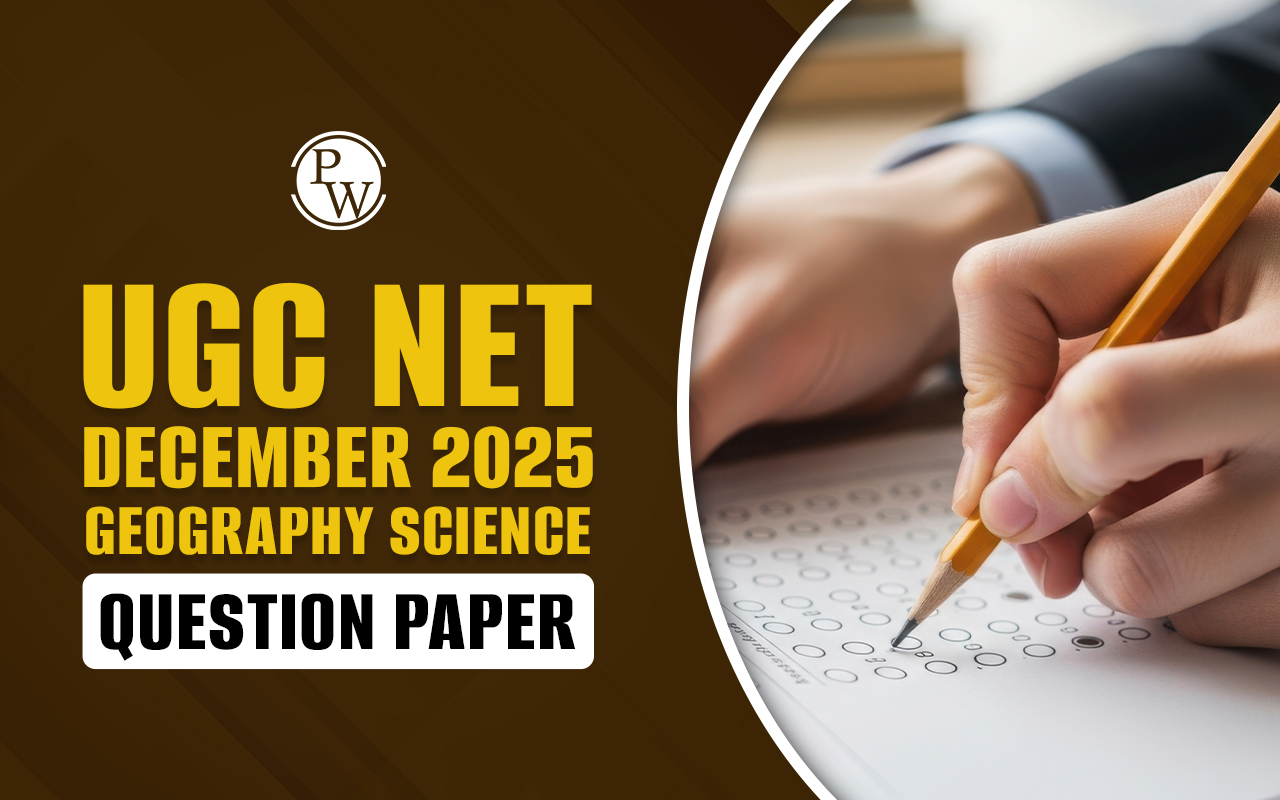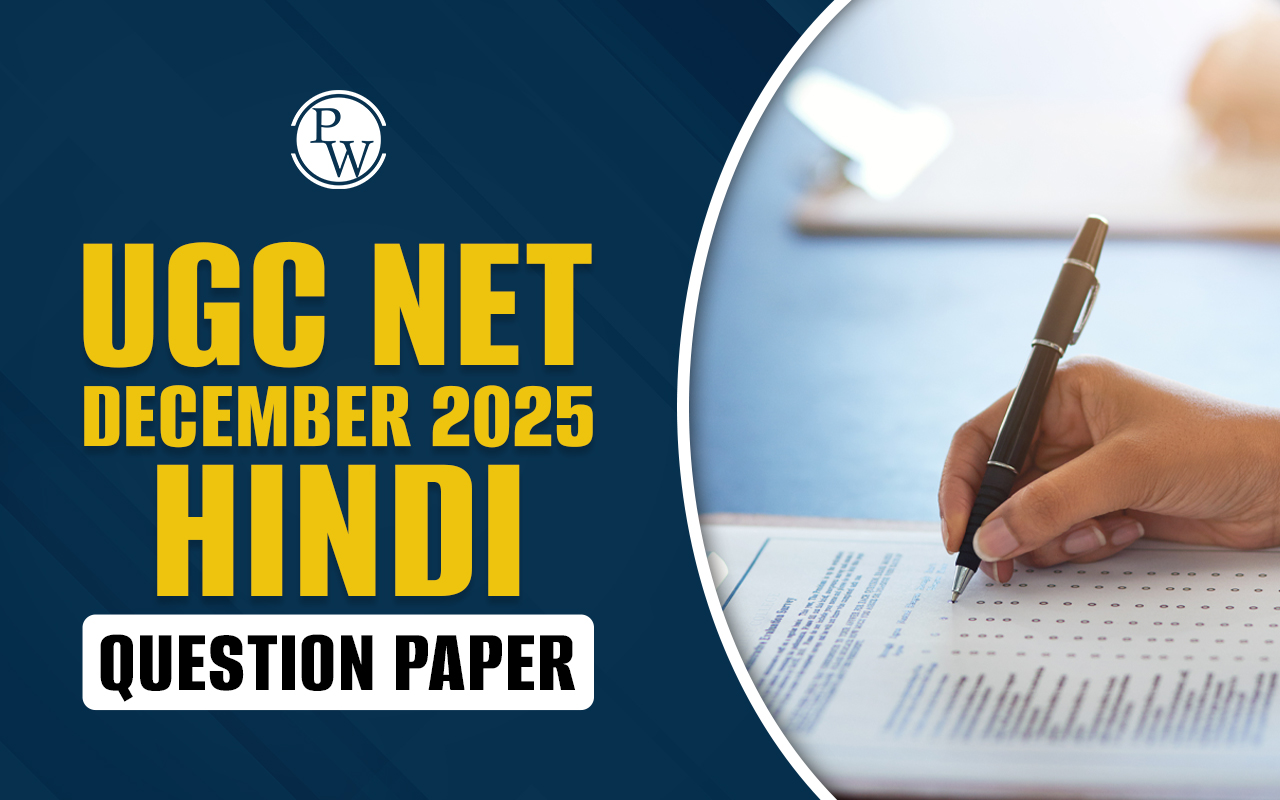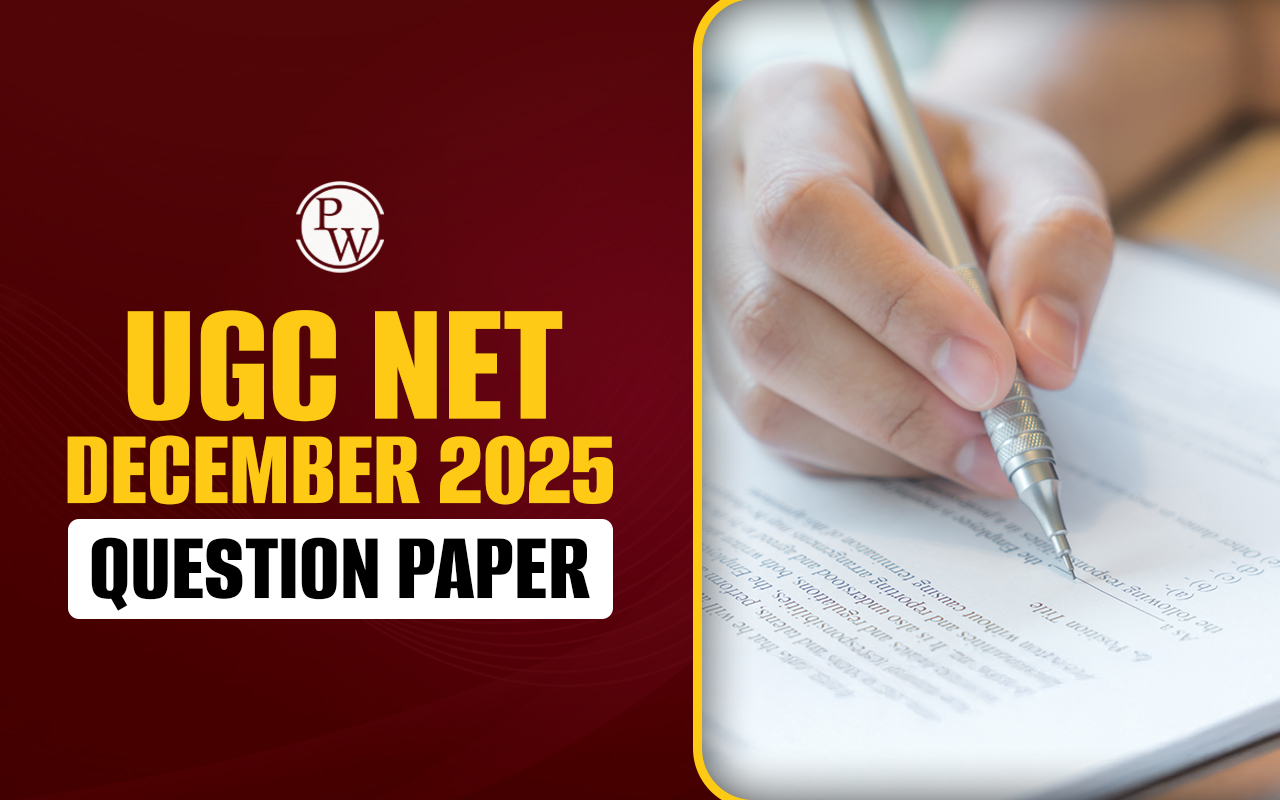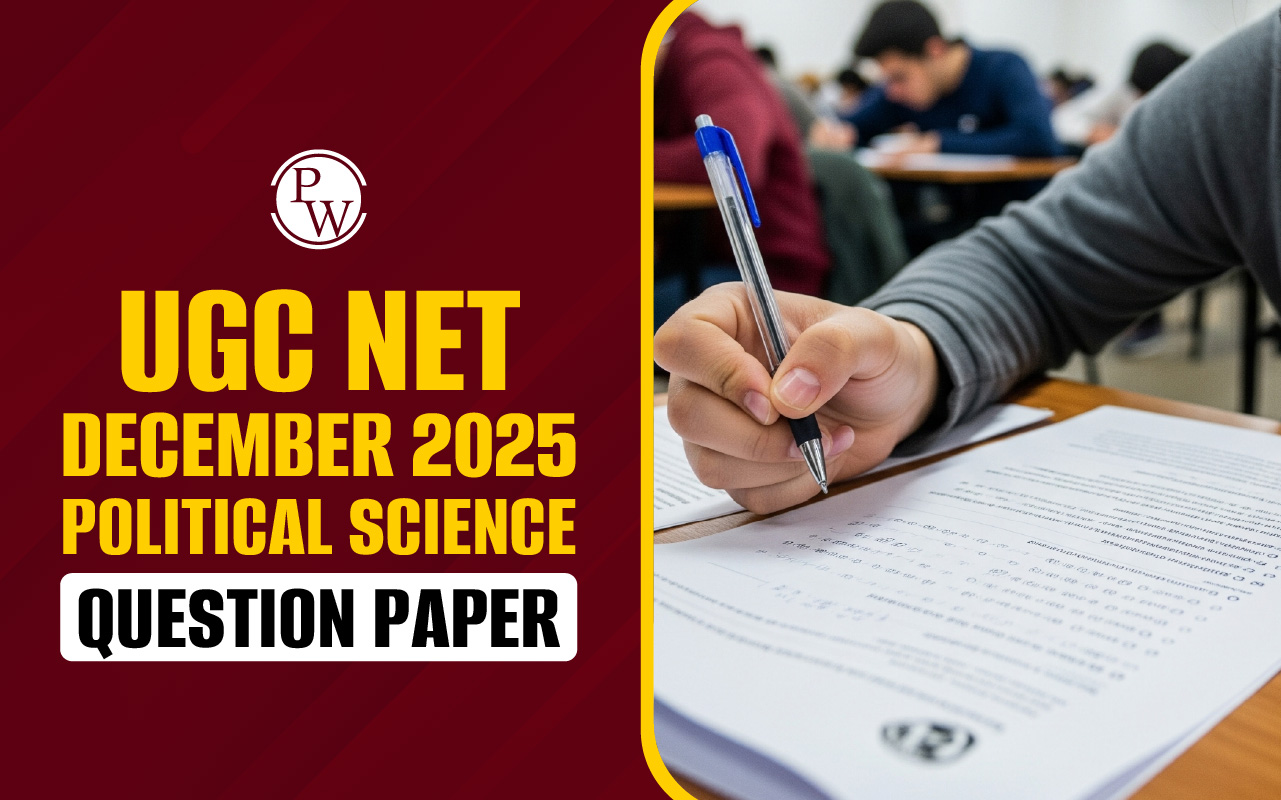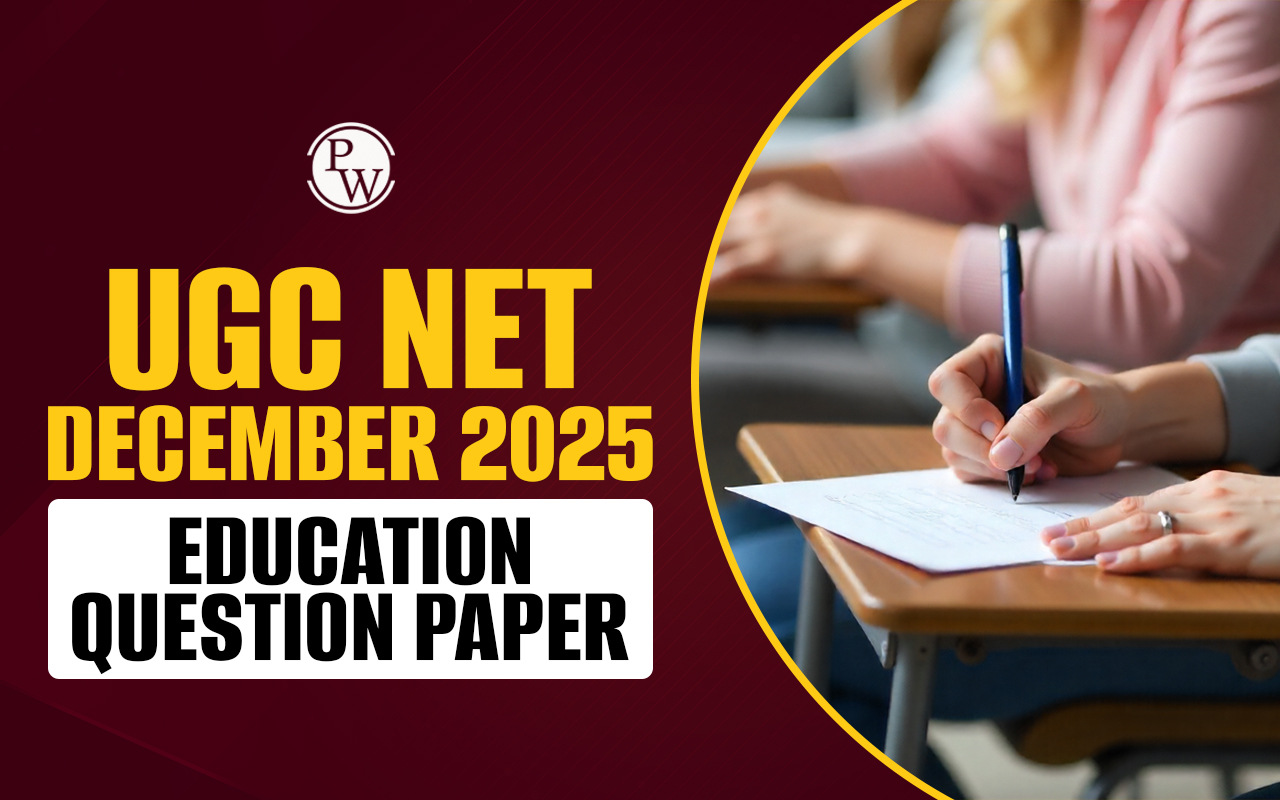GSET Syllabus 2025: Candidates appearing for the GSET Exam 2025 must go through the GSET Syllabus 2025 which will help them to understand the topics and subjects. The GSET Syllabus will act as a base to start preparation for the GSET Exam. However, to qualify for the exam with a good score, candidates must understand the GSET exam pattern and the selection process. This is so because the GSET Exam Pattern 2025 provides aspirants with a clear picture of the number of topics to prepare for, sectional timing, question weightage, and so on. Since the GSET exam is held online test, aspirants must have detailed knowledge of each section’s exam pattern. Therefore, in this post, we have provided the exam and marking details of each section.
GSET Syllabus 2025
The GSET Syllabus 2025 has been officially released along with the official notification which was released on 01 August 2025 by the Maharaja Sayajirao University of Baroda. It includes two papers, Paper 1 focuses on general teaching and research aptitude, and Paper 2 covers subject-specific topics. The syllabus is designed to match the UGC NET pattern for most subjects, ensuring a standard and comprehensive preparation. Candidates can download subject-wise syllabus PDFs from the official website to prepare effectively for the Gujarat State Eligibility Test 2025. Familiarity with the syllabus helps plan study strategies and score well in the exam.
GSET Syllabus 2025 Overview
In order to gain a comprehensive understanding of the GSET Syllabus 2025, it is essential to familiarize yourself with the corresponding exam format. The following section provides an overview of the GSET Syllabus 2025. If you are actively preparing for the GSET Exam, I recommend thoroughly reading this article and structuring your preparation strategy accordingly.
| GSET Syllabus 2025 Overview |
| Name of the Exam |
Gujarat State Eligibility Test |
| Conducting Authority |
Maharaja Sayajirao University of Baroda |
| Exam Level |
State Level |
| Mode of Exam |
Offline |
| Total Papers |
Paper 1: Teaching and Research Aptitude |
| |
Paper 2: 25 Subjects |
| Total Questions |
Paper 1: 50 |
| |
Paper 2: 100 |
| Maximum Marks |
Paper 1: 100 marks |
| |
Paper 2: 200 marks |
| Exam Duration |
Paper 1: One hour |
| |
Paper 2: Two hours |
| Total Exam Duration |
03 hours |
GSET Syllabus 2025 Subject Wise PDF
Candidates can download the GSET Syllabus 2025 PDF to get a clear understanding of the topics covered in each subject. The syllabus will help aspirants prepare effectively by focusing on the important topics for each paper. Click on the link to download GSET Syllabus 2025 Subject Wise PDF:
GSET Syllabus 2025 Subject Wise
The GSET Syllabus 2025 Subject Wise various subjects, including Mathematical Sciences, Hindi, Gujarati, Sanskrit, History, Chemical Sciences, Life Sciences, Political Science, Economics, and more. GSET 2025 will be held offline, which the Maharaja Sayajirao University of Baroda conducts in Vadodara. Successfully qualifying for this entrance examination will make candidates eligible for the position of Assistant Professor in the affiliated Universities and Colleges of Gujarat State. To appear for this examination, candidates will have a three-hour window to complete the entrance exam.
GSET Syllabus for Paper I: General Paper on Teaching & Research Aptitude
| Subject/Topic |
Brief Overview |
| Teaching Aptitude |
Teaching concepts, objectives, and levels Characteristics and requirements of teaching Learner characteristics and individual differences Factors affecting teaching methods of teaching in higher learning Teaching support systems and evaluation |
| Research Aptitude |
Research types, characteristics, and methods, Steps of research, Thesis and article writing, Application of ICT in research, Research ethics |
| Comprehension |
Passage-based questions |
| Communication |
Types and characteristics of communication, Effective communication and barriers and Mass media and its impact on society |
| Mathematical Reasoning and Aptitude |
Types of reasoning and Mathematical aptitude |
| Logical Reasoning |
Understanding argument structure and reasoning and Deductive and inductive reasoning, Venn diagrams for argument validity, Indian Logic and Pramanas |
| Data Interpretation |
Sources, acquisition, and classification of data, Quantitative and qualitative data, Graphical representation and mapping of data and Data interpretation and governance |
| Information and Communication Tech |
ICT terminology and basic internet, Intranet, E-mail, and video-conferencing Digital initiatives in higher education, ICT and governance |
| People, Development, and Environment |
Development and environmental goals, Human-environment interaction and impact, Environmental issues and pollutants, Natural and energy resources, Hazards, disasters, and mitigation strategies, Environmental Acts and International Agreements |
| Higher Education System |
History of higher learning and research in India, Learning programs and education policies, Professional, technical, and skill-based education, Value and environmental education, Policies, governance, and administration |
GSET 2025 Syllabus for Physical Sciences
| Topic |
Brief Overview |
| Mathematical Methods of Physics |
- Dimensional analysis |
| - Linear algebra, matrices |
| - Vector algebra and vector calculus |
| - Cayley-Hamilton theorem |
| - Central limit theorem |
| Classical Mechanics |
- Newton’s laws |
| - Relativistic kinematics and mass-energy equivalence |
| - Non-inertial frames and pseudo forces |
| - Conservation laws and cyclic coordinates |
| Electromagnetic Theory |
- Electrostatics: Gauss’s law and applications |
| - Magnetostatics: Biot-Savart law |
| - Ampere's theorem and boundary value problems |
| - Magnetostatics: Biot-Savart law |
| Quantum Mechanics |
- Wave-particle duality |
| - Tunneling through a barrier |
| - Motion in a central potential: orbital angular momentum |
| Thermodynamic and Statistical Physics |
- Laws of thermodynamics and consequences |
| - Maxwell relations |
| - Thermodynamic potentials |
| - Phase equilibria |
| Electronics and Experimental Methods |
- Semiconductor devices (diodes, junctions, transistors) |
| - Operational amplifiers and their applications |
GSET Syllabus 2025 for Chemical Sciences
| Subject/Topic |
Brief Overview |
| Inorganic Chemistry |
- Chemical periodicity |
| - Transition elements and coordination compounds: structure, bonding theories, spectral and magnetic properties, reaction mechanisms, etc. |
| Physical Chemistry |
- Basic principles of quantum mechanics |
| - Approximate methods of quantum mechanics |
| - Atomic structure and spectroscopy |
| - Chemical bonding in diatomics |
| - Chemical applications of group theory |
| - Molecular spectroscopy |
| Organic Chemistry |
- IUPAC nomenclature of organic molecules including regio- and stereoisomers |
| - Principles of stereochemistry |
| - Aromaticity |
| - Chemistry of natural products |
| - Pericyclic reactions |
| - Asymmetric synthesis |
| Interdisciplinary topics |
- Chemistry in nanoscience and technology |
| - Catalysis and green chemistry |
| - Medicinal chemistry |
| - Supramolecular chemistry |
| - Environmental chemistry |
GSET Syllabus 2025 for Life Sciences
| Subject/Topic |
Brief Overview |
| Molecules and their Interaction |
- Relevant to Biology |
| - Cellular Organization |
| Cellular Organization |
- Fundamental Processes |
| - Cell Communication and Cell Developmental Biology |
| Fundamental Processes |
- Methods in Biology |
| - Applied Biology |
| Cell Communication and Cell Developmental Biology |
- Evolution and Behavior |
GSET Syllabus 2025 for Sanskrit
| Subject/Topic |
Brief Overview |
| General Introduction of Vedic Literature |
- Theories regarding the Vedas |
| - Saṁhitā Literature |
| - Dialogue Hymns |
| - Brāhamaṇa Literature |
| - Āraṇyaka Literature |
| - Vedāṅgas |
| Specific Study of Vedic Literature |
|
| Darśana |
|
| Darśana Literature |
- Special Study of Īśvarakṛṣna, Bādarāyaṇa, Laugākṣibhāskara, Arthasaṁgraha, etc. |
GSET Syllabus 2025 for Sociology
| Subject/Topic |
Brief Overview |
| Classical Sociological Traditions |
- Structural-Functionalism and Structuralism |
| - Hermeneutic and Interpretive Traditions |
| - Postmodernism, Post-Structuralism, and Post-Colonialism |
| - Indian Thinkers |
| Conceptualizing Social Reality |
- Social Change and Processes |
| - Rural and Peasant Society |
| - Urban Society |
| - Political Processes in India |
| - Social Movements and Protests |
| - Science, Technology, and Society |
GSET Syllabus 2025 for Economy
| Subject/Topic |
Brief Overview |
| Micro Economics |
- Macro Economics |
| Statistics and Econometrics |
- Mathematical Economics |
| International Economics |
- Public Economics |
| Money & Banking |
- Growth and Development of Economics |
| Environmental Economics and Demography |
- Indian Economy |
GSET Syllabus 2025 for Political Science
| Subject/Topic |
Brief Overview |
| Political Theory |
- Political Thought |
| - Indian Political Thought |
| Comparative Political Analysis |
- International Relations |
| - India’s Foreign Policy |
| - Political Institutions in India |
| - Political Processes in India |
| - Public Administration |
| - Governance and Public Policy in India |
GSET Syllabus 2025 for Psychology
| Subject/Topic |
Brief Overview |
| Emergence of Psychology |
- Research Methodology and Statistics |
| Psychological testing |
- The biological basis of behavior |
| Attention, Perception, Learning, Memory, and Forgetting |
- Thinking, Intelligence, and Creativity |
| Personality, Motivation, Emotion, Stress, and Coping |
- Social Psychology |
| Human Development and Interventions |
- Emerging Areas |
GSET Syllabus 2025 for English
| Subject/Topic |
Brief Overview |
| Drama |
- Poetry |
| Fiction, Short Story |
- Non-Fictional Prose |
| Language: Basic Concepts, Theories, and Pedagogy |
- English in Use |
| English in India: History, Evolution, and Futures |
- Cultural Studies |
| Literary Criticism |
- Literary Theory post World War II |
| Research Methods and Materials in English |
|
GSET Syllabus 2025 for Library and Information Science
| Subject/Topic |
Brief Overview |
| Data, Information, Knowledge, and Wisdom |
- Historical Development of Libraries in India; Committees and Commissions on Libraries in India |
| Information Sources - Nature, Characteristics, Types, and Formats |
- Computer Technology |
| Library Automation |
- Research - Concept, Purpose, Functions, Scope, and Ethics; Types of Research – Basic and Applied, Interdisciplinary and Multidisciplinary |
| Academic Library and Information System |
|
GSET Syllabus 2025 for LAW
| Subject/Topic |
Brief Overview |
| Jurisprudence |
- Constitutional & Administrative Law |
| Public International Law & IHL |
- Law of Crimes |
| Law of Torts & Consumer Protection |
- Commercial Law |
| Family Law |
- Environment & Human Rights Law |
| Intellectual Property Rights & Information Technology Law |
- Comparative Public Law & Systems of Governance |
GSET Syllabus 2025 for Commerce
| Subject/Topic |
Brief Overview |
| Business Environment and International Business |
- Accounting and Auditing |
| Income-tax and Corporate Tax Planning |
- Legal Aspects of Business |
| Business Finance |
- Business Economics |
| Business Management and Human Resource Management |
- Business Statistics and Research Methods |
| Banking and Financial Institutions |
- Marketing Management |
GSET Syllabus 2025 for Management
| Subject/Topic |
Brief Overview |
| Management |
- Functions |
| Communication |
- Decision Making |
| Managerial Economics |
- Value-Based Organisation |
| Group Behaviour |
- Emotions and Stress Management |
| Capital Structure, etc. |
|
GSET Syllabus 2025 for History
| Subject/Topic |
Brief Overview |
| Negotiating the Sources: Archaeological sources: Exploration, Excavation, Myths, Legends, etc. |
- Pastoralism and Food Production |
| Indus/Harappa Civilization |
- Vedic and later Vedic periods |
| Expansion of State System |
- From State to Empire: Rise of Magadha |
| Dissolution of Empire and Emergence of Regional Powers |
- Gupta Vakataka age, etc. |
| Society and Culture |
- Sources of Modern Indian History |
| Colonial Economy |
- Rise of Indian Nationalism, etc. |
GSET Syllabus 2025 for Computer Science & Applications
| Subject/Topic |
Brief Overview |
| Discrete Structures and Optimization |
- Computer System Architecture |
| Data Structures and Algorithms |
- Data Communication and Computer Networks |
| Artificial Intelligence (AI) |
- |
GSET Syllabus 2025 for Geography
| Subject/Topic |
Brief Overview |
| Earth, Atmospheric, Ocean & Planetary Sciences |
- Mineralogy & Petrology |
| Structural Geology & Geotectonics |
- Paleontology & Its Applications |
| Sedimentology & Stratigraphy |
- Physical Meteorology |
| Atmospheric Electricity |
- Cloud Physics |
GSET Syllabus 2025 for Physical Education
| Subject/Topic |
Brief Overview |
| Teaching Aptitude |
- Recreation |
| Physical Education and Adapted Physical Education |
- Social Aspects of Sports |
| Muscle |
- Neuro |
| Management- Its Principles and Theories |
|
| Subject/Topic |
Brief Overview |
| Food Science & Food Service Management |
- Nutrition & Dietetics |
| Textiles |
- Apparel Designing |
| Resource Management & Consumer Issues |
- Housing & Interior Design |
| Child/Human Development |
- Family Studies |
| Communication for Development |
- Extension Management & Community Development |
GSET Syllabus 2025 for Social Work
| Subject/Topic |
Brief Overview |
| Nature and Development of Social Work |
- Areas of Social Work Practice |
| Research in Social Work |
- Social Work with Individuals and Groups |
| Indian Constitution, Social Justice, Human Rights, and Social Work Practice |
- |
GSET Syllabus 2025 Mathematical Science
| Subject/Topic |
Brief Overview |
| Analysis |
- Elementary set theory, finite, countable, and uncountable sets |
| - Real number system as a complete ordered field, supremum, infimum, archimedean property |
| - Metric spaces, connectedness, etc. |
| Linear Algebra |
- Vector spaces, linear dependence, basis, dimension, algebra of linear transformations |
| - Subspaces, Eigenvalues and eigenvectors, Algebra of matrices, rank, etc. |
| Complex Analysis |
- The complex plane, polynomials, power series, Algebra of complex numbers, transcendental functions |
| - Analytic functions, etc. |
| Algebra |
- Combinations, pigeon-hole principle, inclusion-exclusion principle |
| - Permutations, Derangements, Fundamental theorem of arithmetic, divisibility in Z, congruences, Chinese Remainder Theorem, etc. |
| Topology |
- Basis, dense sets, connectedness and compactness, subspace and product topology, separation axioms |
| Ordinary Differential Equations (ODEs) |
- Existence and uniqueness of solutions of initial value problems for first-order ordinary differential equations |
| - Singular solutions of first-order ODEs, a system of first-order ODEs, General theory of homogeneous and non-homogeneous linear ODEs, etc. |
| Partial Differential Equations (PDEs) |
- Method of separation of variables for Laplace, Heat, and Wave equations, Classification of second-order PDEs |
| - General solution of higher-order PDEs with constant coefficients, etc. |
| Numerical Analysis |
- Numerical solutions of algebraic equations, Rate of convergence, Solution of systems of linear algebraic equations using Gauss elimination and Gauss-Seidel methods, etc. |
| Calculus of Variations |
- Euler-Lagrange equation, Variation of a functional, Necessary and sufficient conditions for extrema. Variational methods for boundary value problems in ordinary and partial differential equations |
| Linear Integral Equations |
- Characteristic numbers and eigenfunctions, resolvent kernel, Linear integral equation of the first and second kind of Fredholm and Volterra type |
| - Solutions with separable kernels |
| Classical Mechanics |
- Lagrange’s equations, Generalized coordinates, Hamilton’s canonical equations, Hamilton’s principle and the principle of least action |
| - Euler’s dynamical equations for the motion of a rigid body about an axis, the theory of small oscillations, Two-dimensional motion of rigid bodies |
| Theorems |
- Descriptive statistics, exploratory data analysis, Sample space, Bayes theorem, Modes of convergence, Limit theorems (i.i.d. case), Independent random variables, etc. |
GSET Exam Pattern 2025
Understanding the exam pattern is essential as it provides a comprehensive overview of the question paper structure. Candidates can refer to the GSET Exam Pattern 2025 provided in the table below. The officials of The Maharaja Sayajirao University of Baroda, Vadodara, conduct the examination. To excel in the exam, candidates need a thorough understanding of key details such as subject names, the number of questions, marks allotted, exam type, and time duration for each paper. Additionally, information about negative marking is also available here.
| GSET Exam Pattern 2025 |
| Aspect |
Paper 1 |
Paper 2 |
| Number of Questions |
50 |
100 |
| Maximum Marks |
100 |
200 |
| Duration |
1 Hour (09:30 am – 10:30 am) |
2 Hours (10:30 am – 12:30 pm) |
| Marking Scheme |
+2 marks per correct answer |
+2 marks per correct answer |
| Negative Marking |
No |
No |
GSET Marking Scheme 2025
The Gujarat GSET Exam Pattern regarding the marking scheme is outlined as follows:
- The GSET Exam holds a total weightage of 300 marks.
- Paper I accounts for 100 marks, and Paper II is allocated 200 marks.
- Every question is worth 2 marks, and there is no penalty for incorrect answers.


